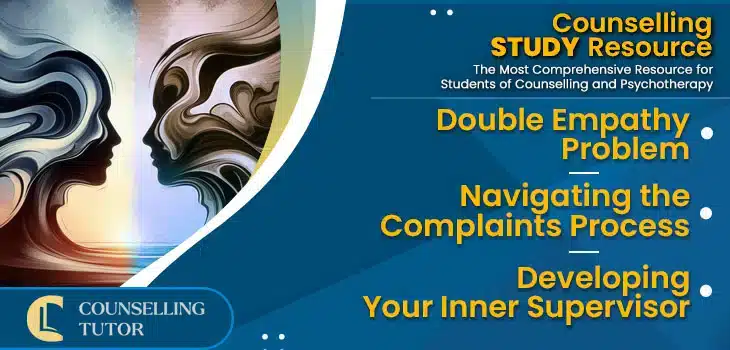See Counselling Skills Used in Real Sessions by Qualified Therapist
Real Sessions – Real Presentations – Real Skills
Gain the competence and confidence to use counselling techniques effectively!

In Episode 319 of the Counselling Tutor Podcast, your hosts Rory Lees-Oakes and Ken Kelly take us through this week’s three topics:
Double Empathy Problem
When working with neurodivergent individuals, we might encounter barriers to communication. In this section, Rory and Ken discuss the Double Empathy Problem, and how you might be able to work around this in your practice:

Real Sessions – Real Presentations – Real Skills
Gain the competence and confidence to use counselling techniques effectively!
This section is part one of an interview with Susie Jamieson about her experience navigating the complaints process.
The key points of this section include:
Look out for part 2 of this interview next week!

On-demand access to a rich lecture library covering theory, skills, and professional development for counselling students—Mapped to the UK awarding body criteria
“The Student Library has been BRILLIANT, I can’t recommend it enough!
It has been a lifeline in helping me prepare for practice and my first clients. If you’re considering it, go-for-it, it’s absolutely worth it!”
Kelly – Graduated and now in practice.
In this section, Rory and Ken look at what the internal supervisor is, and how this develops over the course of your training:
Double Empathy Problem

Get on-demand Certified CPD that is implementable in your practice
